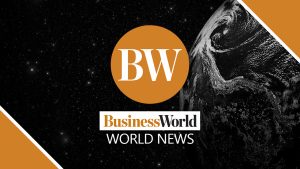Enabling a financially inclusive future

With more Filipinos onboarded to the formal financial system, goods and services must be properly designed to allow for greater participation
Financial inclusion allows everyone to access a wide range of financial services. Access is defined by availability and how products and services respond to various needs.
From starting a business, buying a house, or planning for retirement, financial inclusion helps achieve broader aspirations in life. By helping people and businesses gain financial control, financial inclusion can spur sustainable development for more Filipinos nationwide.
Addressing local challenges towards financial inclusion
Despite steps taken towards greater financial inclusion, exclusion continues to disproportionately affect many Filipinos. In a survey by the Bangko Sentral ng Pilipinas (BSP) in 2019, over 51 million Filipinos were unbanked. As formal lenders tend to reject consumers due to lack of information, 44% of the unbanked population have to rely on non-bank sources for loans.
In response, the rise of digital banking creates more opportunities for financial inclusion. At a media briefing, the BSP cited an increase in basic deposit accounts plus the activation of e-wallet services resulted in around 20 million Filipinos onboarded to the formal financial system between 2020 and Q3 of 2021 — bringing the number of “banked” Filipino adults to around 41 million.
With digital transactions rising, connectivity is crucial to realize the potential of digital financial services. Poor internet access and infrastructure will only hinder advances. A lack of awareness is also among reasons why Filipinos forego financial services. While the BSP survey showed 7 out of 10 unbanked adults own mobile phones, lack of knowledge on mobile financial services and a preference for in-bank transactions stood as barriers against online financial transactions.
To deepen trust in digital financial institutions, the government must continue to work with the private sector for financial literacy programs and digital skills-building to boost access. Financial institutions and other businesses must help increase general awareness.
Good credit scoring for better financial flexibility
For greater access to financial goods and services, a good credit score is key. Based on increased insights on a person’s credit history, credit scores help lenders assess a person’s financial risk — enabling customers to receive better terms on credit cards, housing loans, and insurance.
Leveraging technology and innovation, and backed by stalwarts of the local banking industry, TransUnion Philippines was established in 2011 to make trust possible between consumers and businesses. As the first international private credit bureau in the country, TransUnion uses alternative data where traditional data from financial institutions isn’t available to give financially ‘invisible’ Filipinos a traditional credit score. Spanning mobile phone and device data, alternative data provides additional insight on an applicant’s credit worthiness.
Alongside credit information campaigns, TransUnion utilizes information to unlock credit opportunities for Filipinos. For businesses, the updated CreditVision Link Universal Score and Custom Scorecards leverage credit and alternative credit data to enhance risk decisions and understand consumer trajectory, while digital onboarding technology simplifies processes to increase acquisitions while safeguarding against fraud.
Other risk management solutions include credit reports that integrate data from Philippine financial institutions for complete views of consumer credit history, an income estimator for precise consumer targeting, and triggers which monitor customer behavioral changes to identify opportunities and limit risks – enabling businesses to manage portfolios more effectively. With these measures, more Filipino consumers become credit visible as lenders and businesses possess comprehensive assessments of financial behavior.
With the Philippines moving towards post-pandemic times, the financial market must be more inclusive. By empowering individuals to become financially visible by providing institutions with information and insights to comprehensively assess risk, people can act as a catalyst for the economy, benefiting the country while unlocking a better quality of life for themselves and their families.
Pia Arellano has over 25 years of industry experience across banking, payment solutions, telecommunications, and remittance services. She has been instrumental in establishing TransUnion as a risk management and data solutions and insights partner of banks and financial institutions in the Philippines.
Email questions to tuphcomms@transunion.com.
Spotlight is BusinessWorld’s sponsored section that allows advertisers to amplify their brand and connect with BusinessWorld’s audience by enabling them to publish their stories directly on the BusinessWorld Web site. For more information, send an email to online@bworldonline.com.
Join us on Viber to get more updates from BusinessWorld: https://bit.ly/3hv6bLA.




